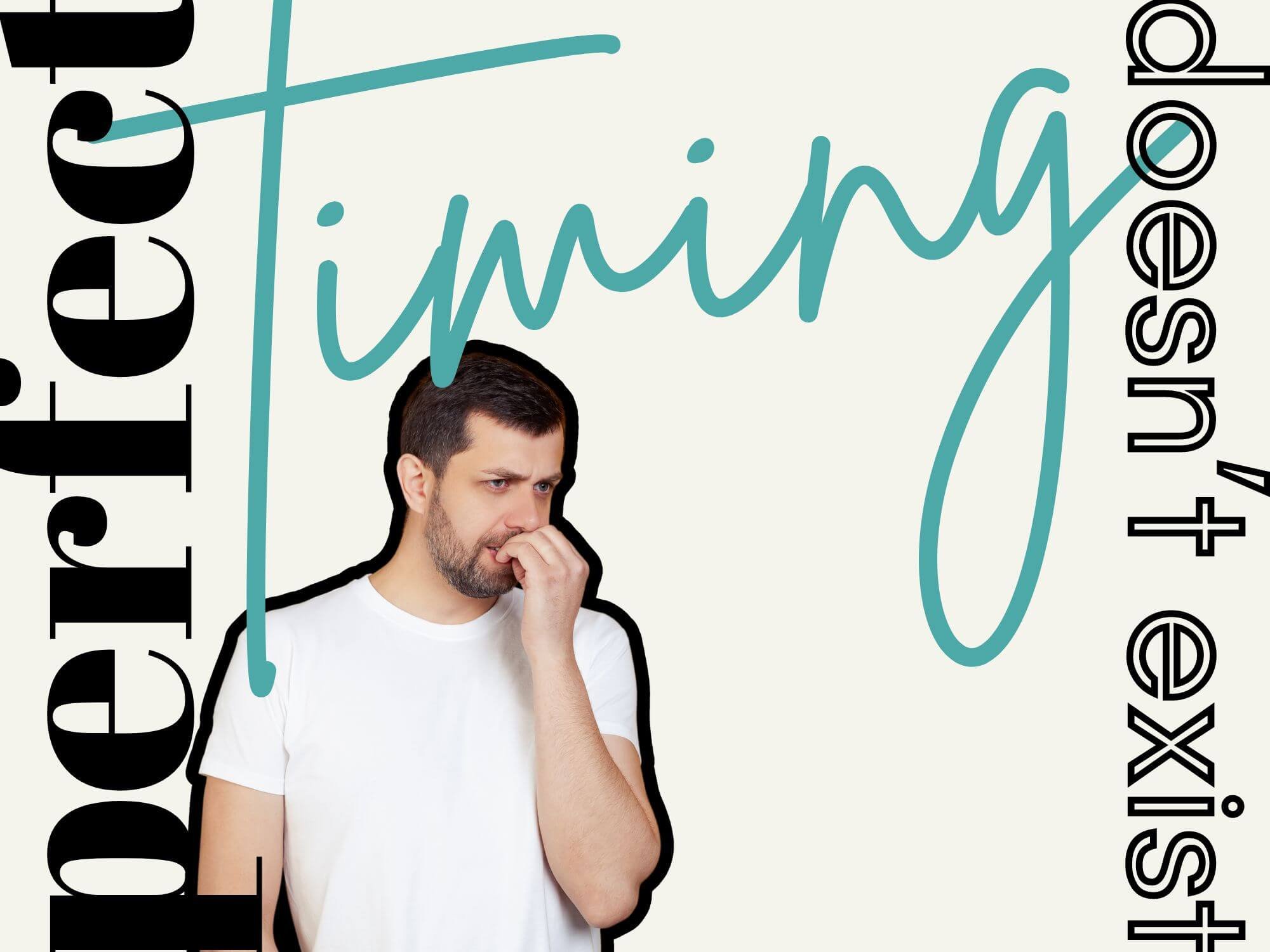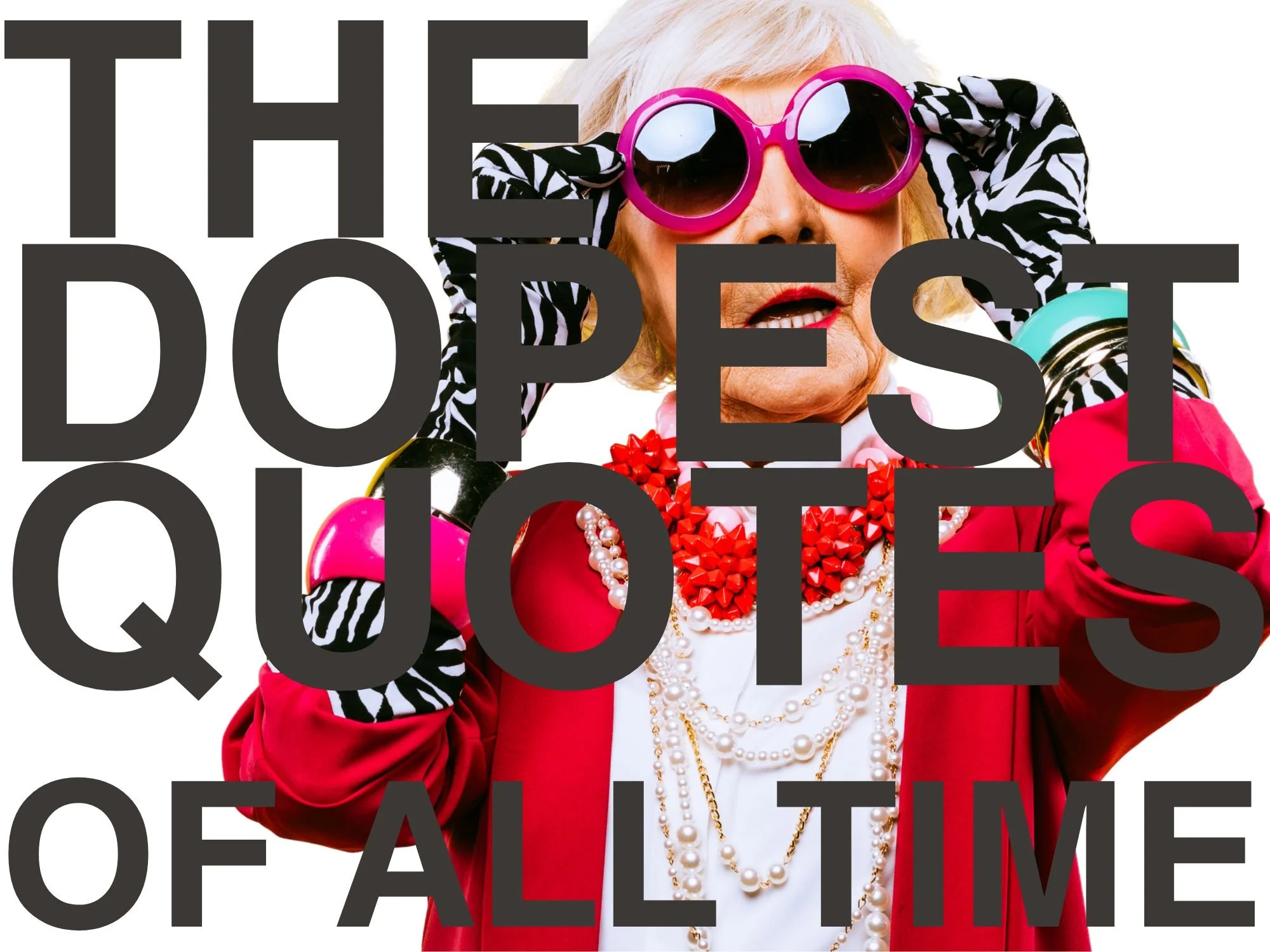Book That Ticket, Do That Thing (start before you’re ready)
The timing with never be right.
So hop on that plane, start that business and do that thing you’ve been wanting to do. The world is waiting for you, your epic projects and artistic take on things.
Start before you’re ready — that’s the secret. This is how the most inspiring people and stories get their momentum, learn, grow and achieve awesome things.
I’m far from perfect, but the less I wait on stuff, the more exciting my life gets. So this is what’s working for me.
Now let’s do this!
Table of Contents Show
Why We Wait…
We wait for all sorts of reasons. And it’s often personal and contextual. So I like to do some self reflection to better understand myself, my goals, my fears, my weaknesses and more.
But here are some common reasons why we wait on starting things:
Fear of failure
Fear of success
Lack of resources
No urgency
It’s not important
Lack of time
Negative past experiences
The wrong mindset
A lack of clarity or direction
General anxiety or fear of looking dumb
Benefits of Starting Before You’re Ready
Discover issues faster and learn faster
Actually move closer to your goals
Build more sustainable habits
Overcoming perfectionism
Spark creativity and on-the-fly work
Work on progress over planning
Explore more:
➤ I Finally Improved my Follow-Through
How to Start Before You’re Ready (x tips)
“The best way out is always through”
1. Tell No One
I’ve used this strategy a lot with my music and art projects. Doing something in secret takes away the awkwardness of putting yourself out there in front of friends and family.
This is especially a good strategy if you’re doing some type of creative work.
One fun way to do this is by creating an alter ego. Here’s how:
Define your ideal character traits
Get inspired by your idols and mentors
Try a pen name and use separate social accounts
Embody your alter ego
2. Tell Everyone
Sometimes, telling no one is the worst move. So if this isn’t working or doesn’t feel right for you, maybe you should tell everyone instead.
This create public pressure and accountability.
Telling everyone you know (and more) is better if you’re the type of person who quits easily, puts things off or struggles with follow-through. And no shame here either! I’m totally guilty of being sluggish with my projects.
Here are a few ways to make things more public:
Make it a public challenge
Share your progress (mistakes and all)
Vlog or blog about your journey
3. Reframe Stuff as a Project
A little while back, I started reframing all of my goals as projects. And it’s been such a powerful shift in perspective.
It feels more creative and fun and less stressful. It also feels more tangible.
Because goals tend to feel like hopes or dreams. But projects are more active. Just feel the difference:
I have a goal of starting this business.
I have a project of starting this business.
The second one just hits different — you can feel it! So don’t have goals, have projects.
Explore more:
➤ Have Projects, Not Goals (the artist’s way)
4. Just Look at the Next Step
When I struggle with starting before I’m ready, I like to focus just on the tiny step that’s in front of me — not the top of the mountain off in the distance.
Looking to far ahead can create anxiety and feelings of overwhelm. But shifting focus to the nano breaks things up and makes the work feel less intimidating or stressful.
To shift focus, it helps to first break down your big goals into smaller ones. Keep the macro in mind, but focus on the nano.
That’s the move.
Explore more:
➤ The ‘Do Something’ Principle Works
5. Use Your Zone of Proximal Development
“Your zone of proximal development takes advantage of baby steps and sustainable growth forward.”
Your zone of proximal development is the area just beyond your current comfort and skills. It’s not too much, but also not too little — which is the perfect place for real, sustainable growth.
For example, I like to make music. Now let’s say I want to start releasing music — but I don’t feel ready. Luckily, there are a series of steps before actually releasing music (this is true for most things).
So instead of just uploading and hitting release through a distributor, I’ll work within my zone of proximal development by focusing on one step at a time:
Start by finishing a list of songs
Choose one to produce
Spend a month or two making it awesome
Spend a few weeks hyping it up with pre-release content
Pitch the upcoming release to playlists, bloggers and curators
Release
Each step in this process stretches my zone of comfort just a little more.
I didn’t feel ready to release, but I felt okay with simply finishing and preparing the songs for release. It was a little pressure, but not too much.
6. Stack the Deck
I’m about as good as the people, places and things in my life. So let’s stack that deck.
This means engineering a context in your life that support your goals and starting more things (before you feel ready).
Here’s where I focus:
My inner circle
The people in my life
My outer circle
The content I consume
My environment
The spaces and places I spend time in
7. Use Visualization
Artists, business leaders and athletes all use it. It’s a powerful mental move that seriously works.
Visualization is when you imagine some future situation in your mind and emotionally embrace it as if it’s already happening or happened. It’s a form of mental practice.
Research even shows that visualization can grow new muscles, improve athletic performance and boost confidence.
Pretty epic if you ask me! So if you’re struggling to start before you’re ready, try starting with some visualization. It’s low pressure and creates legit changes.
Here are some tips:
Get detailed — be specific
Use emotion — feel your visualization
Believe what you’re doing — expect and accept
Be open — don’t control how things happen, just trust the process
Explore more:
➤ How to Manifest (like an artist)
Later ✌️
Starting before you’re ready is how you reach your goals. But it’s not always easy. Sometimes, we feel scared, unprepared or like an imposter. But the truth is, nobody knows what they’re doing (at least in the beginning).
So the only strategy is to just start.
Some helpful tricks I like to use are visualization, stacking the deck and reframing things as creative projects.
Ultimately, a shift in becoming more process-oriented and loving the journey is key.
Focus on the nano, enjoy the ride and detach from expectations or metrics. That’s the secret.
Want More? Nice. Here’s More.



![7 Goals for Driven, Creative or Adventurous People [2026]](https://images.squarespace-cdn.com/content/v1/61454c3a9e607805cad7423a/3ca024d9-8426-4cdf-9235-b0f2df252373/personal-goals-new-years.jpg)
